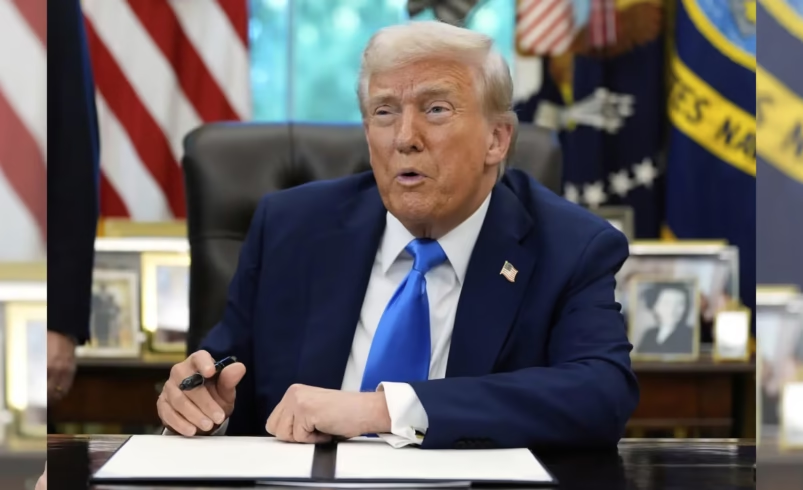Trump’s executive order designating Antifa as domestic terrorists
- September 23, 2025
- 0

Donald Trump has signed an executive order officially designating Antifa as a “domestic terrorist organisation.” The decision has ignited widespread debate, with legal scholars, political analysts, and civil rights advocates questioning both its enforceability and its broader implications. The move comes in the wake of the assassination of MAGA activist Charlie Kirk. While the killing has added urgency to discussions around political violence, no direct connection between the incident and Antifa has been established.
The designation of Antifa as a domestic terrorist group immediately raised constitutional concerns. Unlike foreign terrorist organizations, which can be formally listed under existing U.S. law, there is no established legal framework for labeling domestic groups in the same way. Experts argue that such an order could clash with First Amendment protections covering free speech and assembly. Legal analysts note that the government lacks clear statutory authority to criminalize membership in or support for a domestic political movement, making the order largely symbolic rather than actionable in court.
Observers widely view the executive order as more of a political signal than a functional policy change. Without mechanisms to prosecute individuals solely for alleged ties to Antifa, enforcement remains limited to existing laws addressing violent acts or criminal conspiracies. Critics suggest that the designation may serve more as a rhetorical tool to galvanize supporters rather than a measure with tangible legal consequences. Supporters, however, argue that it underscores a firm stance against political extremism and unrest.
Civil liberties advocates warn that targeting Antifa under terrorism language risks setting a precedent for labeling other activist movements in similar ways. Because Antifa is not a centralized organization but rather a loosely affiliated movement, defining it legally poses significant challenges. Analysts caution that broadening terrorism definitions could blur lines between constitutionally protected protest activity and unlawful violence, raising questions about government overreach into political expression.
The assassination of MAGA activist Charlie Kirk has intensified public attention on politically motivated violence across the country. However, officials have not linked Antifa directly to the incident. The absence of evidence tying the killing to any specific group highlights the difficulties in attributing acts of violence to decentralized movements such as Antifa. This lack of direct connection underscores why many experts believe the executive order functions more as a symbolic gesture than an actionable policy response to specific threats.
Beyond its legal limitations, the order carries significant political weight. By framing Antifa as a domestic terrorist threat, Trump reinforces his administration’s narrative on law and order while appealing to supporters concerned about unrest and ideological clashes in American society. The move also positions opponents of the designation in a difficult spot—balancing condemnation of violence with defense of constitutional freedoms—further fueling partisan divides around security and civil liberties.
In summary, Trump’s executive order declaring Antifa a domestic terrorist organization has stirred controversy across legal, political, and social spheres. While experts agree that it lacks enforceable power under current U.S. law, its symbolic impact is undeniable—serving both as a statement against extremism and as a reflection of deepening divisions over how America defines terrorism within its own borders.